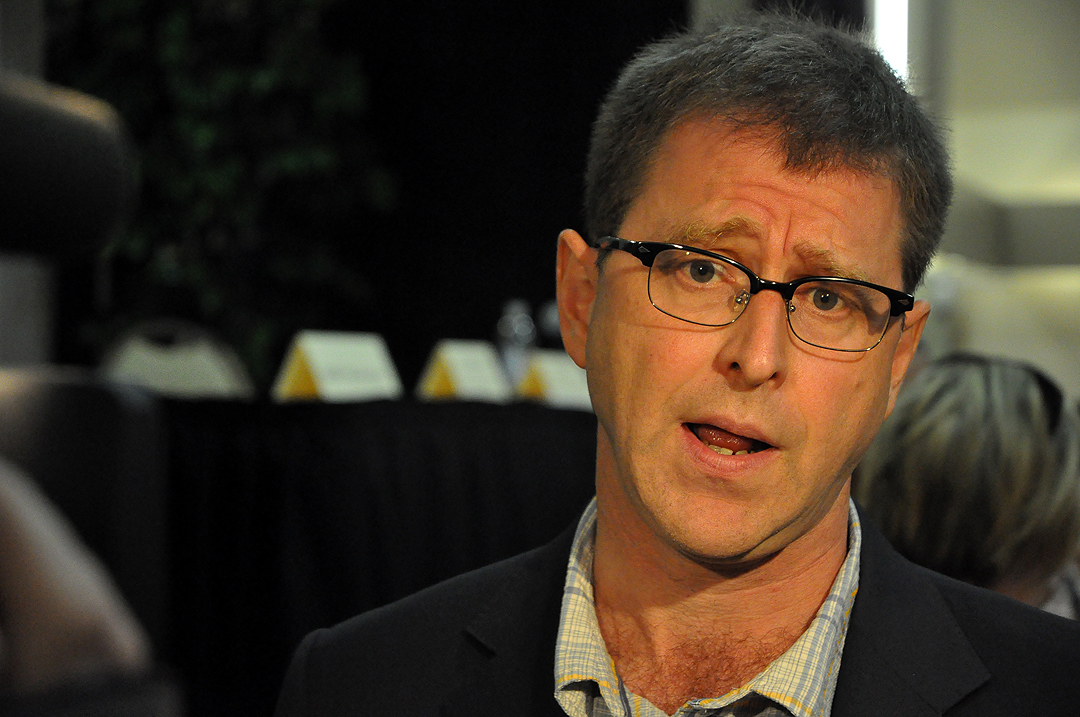In just a few days, gay and bisexual men in British Columbia, and others at risk of contracting HIV, will have free access to a drug that significantly reduces the risk of getting infected.
After months of studying the question, the BC Ministry of Health will begin covering PrEP at no cost on Jan 1, 2018, through the BC Centre for Excellence in HIV/AIDS.
Studies show that people who take PrEP (or pre-exposure prophylaxis) every day are at almost no risk of contracting HIV, and are unlikely to develop side effects.
The government’s decision to cover PrEP is a major victory for gay men’s health advocates in the province, who say access to the drug will bring down stubbornly high infection rates among men who have sex with men — who make up more than half of new HIV infections in BC — and curb an uptick of HIV infections among young gay men.
While Ontario and Quebec already subsidize PrEP through their provincial drug programs, BC will be the first Canadian province to offer it entirely for free.
Until now, cost has kept PrEP out of the hands of many people who need it most in BC, and doctors, scientists and activists have urged the province to step in and pay for the drug. Just under a year after NDP leader John Horgan told Xtra he supported PrEP coverage on the BC election campaign trail — and five months after he was sworn in as premier — the provincial government delivered.
“I think the recommendation was clear, and there were some details we had to work out,” BC health minister Adrian Dix tells Xtra. “We got it done, and I think it’s a good decision.”
BC’s new PrEP program will cover a generic version of the drug called tenofovir-emtricitabine (which is also sold as the brand-name drug Truvada), to be used as PrEP for men and trans women who have sex with men, as well as people with HIV-positive sexual partners, injection drug users and other groups at higher risk of being infected with HIV.
Activists and politicians who have pushed for PrEP coverage in BC tell Xtra they’re thrilled by the sudden announcement.
“I had a really good feeling this was coming,” says Spencer Chandra Herbert, the NDP MLA for Vancouver–West End, who told Xtra in November that he was pushing behind the scenes for PrEP coverage.
“It’s a good new year’s gift for those who need the help. It’s a good community healthcare tool, and it will make a difference for a lot of people,” he says.
“A win for the community, for sure,” says Jody Jollimore, the managing director of the Community Based Research Centre and an activist who spearheaded a campaign to convince the province to pay for PrEP.
But Jollimore emphasizes that cost isn’t the only barrier stopping PrEP from getting into the hands of people who need it.
“Right now I think it’s time to celebrate and be happy that the government is supporting this — and at the same time there’s still a lot of work to do,” Jollimore says.
He says more gay and bisexual men will need to be educated about PrEP and how to access it, and more doctors will need to be prepared to prescribe the drug and provide the ongoing care and testing that PrEP guidelines require.
“Never mind if your doctor is willing to prescribe it; if you don’t have a doctor what do you do?” Jollimore asks. “How many gay guys in Vancouver don’t have a doctor? They all have to find now a doctor to follow them. And that might end up being the biggest barrier.”
Experts estimate that only about 750 men are using PrEP in BC right now, some through private insurance plans and some by importing generics from overseas and picking them up in the United States. Under the new program, the head of BC’s Centre for Excellence in HIV/AIDS says the number of people on PrEP could swell to as many as 5,000.
The BC Centre for Excellence will not itself decide who gets access to PrEP; it will only procure the drugs required to fill the prescriptions. Primary care doctors will be the ones to decide to prescribe PrEP based on the risk levels of individual patients.
The province’s new access to PrEP is in part thanks to a deal worked out between the BC Centre for Excellence in HIV/AIDS and generic manufacturers of the drug. The same drugs that are used in PrEP are also used to treat patients who have HIV. Under the deal, new, cheaper generics will drop the prices of HIV treatment, opening up more room in the centre’s budget for PrEP.
Both Dix and BC Centre for Excellence director Dr Julio Montaner say the new program will not require any increase in the centre’s budget. Because it’s not clear how many people will sign up for free PrEP, Dix says he can’t say how much the program will cost.
Montaner says there is no cap on how many people could access PrEP, but that the focus of the program is on people at the highest risk.
“Our modelling has shown that if we were to capture a few thousand people, we would see a dramatic decrease in the epidemic going forward,” he says.
Along with the announcement on PrEP, the BC Ministry of Health also announced that it will expand access to post-exposure prophylaxis (PEP), a drug taken after exposure to HIV that can also prevent infection.


 Why you can trust Xtra
Why you can trust Xtra


